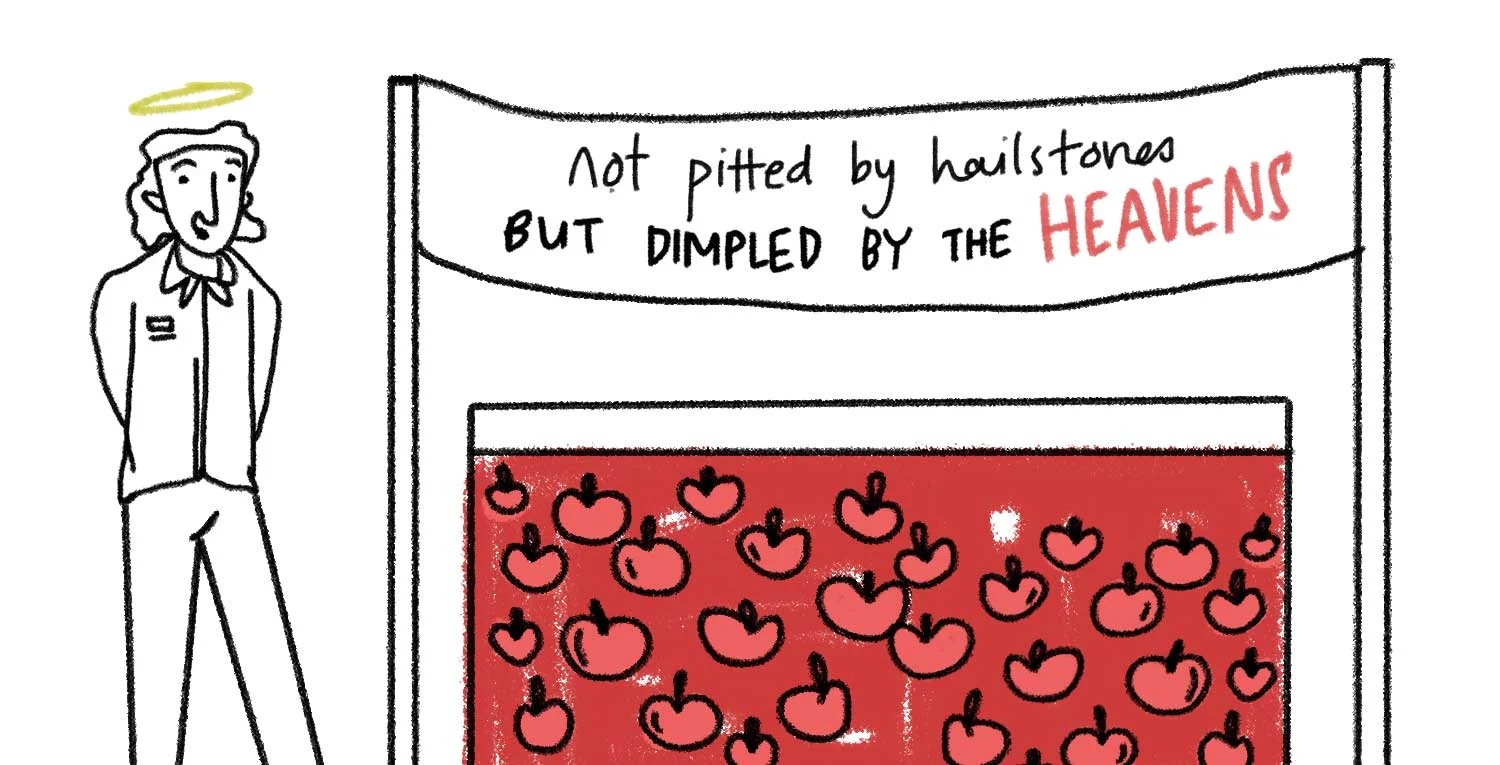Framing
“None of us see the world as it is but as we are, as our frames of reference, or maps, define the territory.”
James Webb-Young was a successful American advertising executive.
He received many accolades during his career including the Advertising Man of the Year Award in 1946.
Webb-Young also found time to write one of the most enduring books on the creative process.
When he retired, he bought an apple farm in the mountains of New Mexico.
The orchard was several hundred acres in size which was more than enough for him to top-up his retirement income.
What Webb-Young didn’t realise is that the high-altitude meant hail stones would regularly fall and damage the surface of his crop.
Apple merchants weren't interested in selling them as they appeared substandard.
Thinking creatively, he decided to sell the apples at a premium via mail order.
He did this by describing the unattractive pits in the apples as ‘dimples’ and used the line ‘Not pitted by hailstones but dimpled by the heavens.’
This was proof of the apples’ high-altitude provenance. He had turned an apparent shortcoming into a unique benefit.
This wonderful story illustrates the concept of ‘framing’. This is the idea that the same product attribute (in this case the dents in the apple) can be something desirable or unpleasant depending on how you frame it.
Some other great examples of framing include:
1. A yoghurt could be labelled as ‘90% fat free’ or, alternatively, as containing ‘10% fat.’
2. ‘XYZ company’s stock showed a slight decrease of 0.1%’ or, alternatively, ‘XYZ company suffered a loss of 10 million from a drop in the share price’, even though the actual numbers are identical.
3. Would you rather buy a condom described as being ‘95% effective’ or having a ‘5% chance of failure’?
If you found this post interesting and you want to learn more about behavioural economics, try our popular course with the brilliantly intelligent Rory Sutherland.






